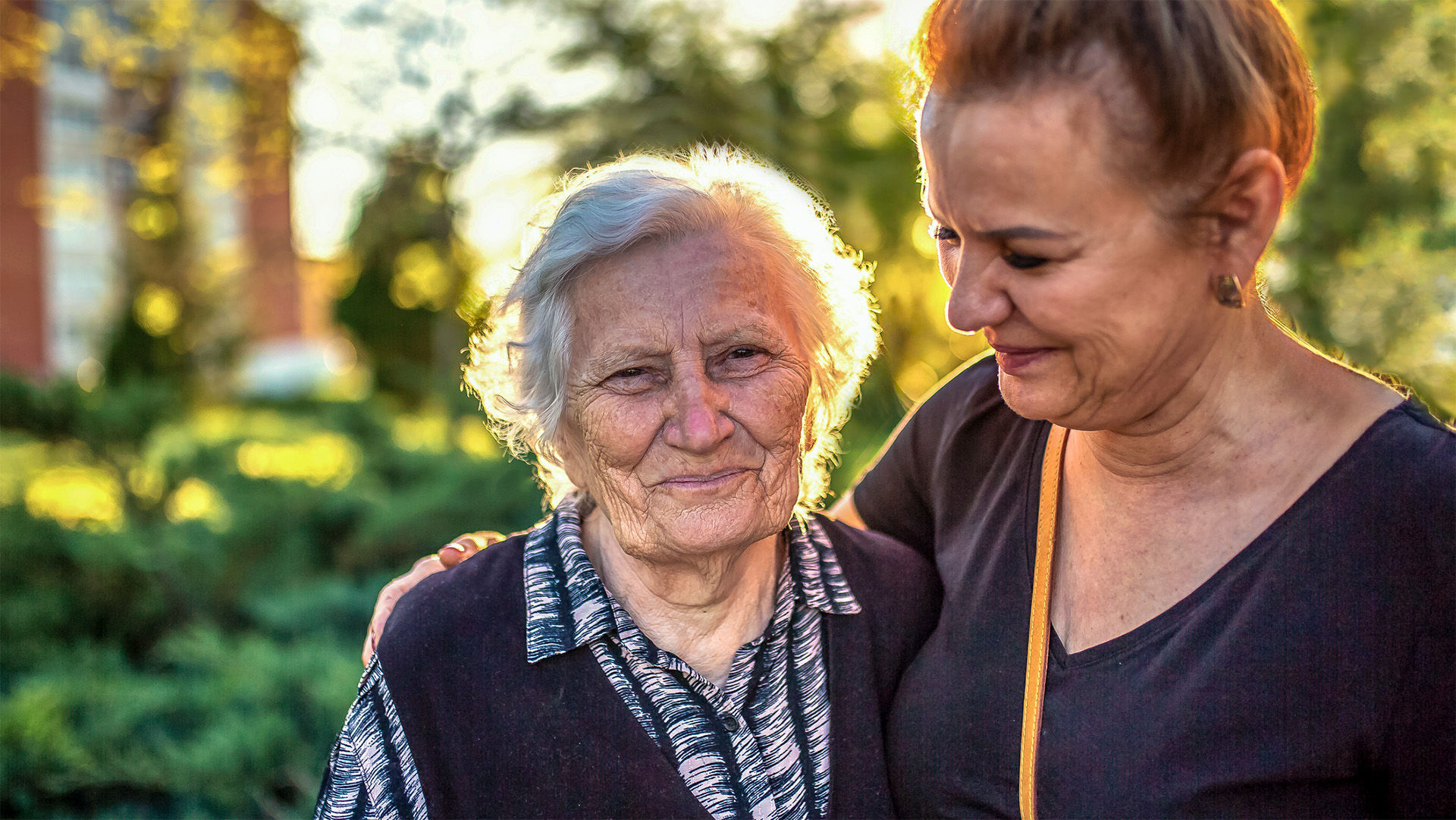Caring for a parent or older family member is a balancing act: You want to be able to provide the level of attentive care they need, but you also need to take care of yourself.
The complex emotional nature of caregiving can make it hard to recognize the toll it takes on your personal health and well-being. Spending too much time attending to your family member’s needs without attending to your own can lead to a condition called caregiver burnout – which isn’t healthy for you or your family member.
What is caregiver burnout?
Caregiver burnout, also known as caregiver exhaustion, is what happens when you put so much time and energy into taking care of someone else that you’re too exhausted to take care of your own needs.
What are symptoms of caregiver burnout?
Among the most common symptoms are fatigue, depression and losing interest in hobbies and other things that bring you joy. Other signs of caregiver burnout include anxiety, insomnia, irritability, chronic headaches, and body aches and pains.
Feelings of guilt and resentment toward your family member – and alternately feeling that you’re doing too much and not enough – are also common.
The good news is there are plenty of ways to alleviate caregiver burnout.
Build a support system
Reach out to family and friends to discuss what you’re going through. Sometimes simply sharing your feelings and experiences can make you feel less isolated. And if the people around you understand the challenges you’re facing, they may offer to help with your caregiving duties.
In some cases, you may need more support than family and friends can provide. If you feel like you may be experiencing caregiver depression, consult your doctor or seek out a professional therapist or a counseling support group. Having thoughtful listeners who empathize with your situation can help you manage your emotions.
Try a short-term stay at an assisted living community
An invaluable option for caregivers and their families, a short-term stay at an assisted living community can provide temporary relief from caregiving duties. Your family member will receive the support they need from professional caregivers, allowing you to take a well-deserved break – whether it’s a vacation, some time with family and friends, or simply relaxing at home without caregiving responsibilities.
Short-term stays also offer a number of benefits for seniors. They’ll be able to enjoy all of the community’s amenities and events while also having plenty of opportunities for social engagement.
Prioritize self-care
Make sure you’re proactively taking care of your physical and mental health. This includes getting enough sleep, eating well, staying active, engaging in activities you enjoy, and spending time with family and friends.
It’s also important to take regular breaks throughout the day. Even a brief pause from caregiver duties can make a difference. Stepping outside for fresh air, listening to calming music, and doing some relaxation exercises are all good ways to take a quick break.
Organize your time
Effective time management is essential when attempting to balance caregiver duties with your own well-being. Create a caregiving schedule that lets you dedicate time to your needs as well as those of the person you’re caring for. This is especially important for caregivers with busy careers or young children who also require their time and attention. Planning out your calendar in advance can make it easier to manage all your responsibilities.
If you can arrange for help from friends and family, this can take some of the pressure off you. For example, maybe a spouse or a sibling can lend a hand so you have time to run errands, see friends or go to the gym.
Know your limits and plan for the future
At some point, the level of care your family member needs may become more than you’re able to provide. Changing health conditions, such as the onset of dementia or the decline of physical mobility, can require professional care.
It’s important to recognize when it’s time to consider assisted living or memory care as the right caregiving option for your family. These transitions can be difficult but may ultimately be the best course of action for your family member’s well-being.
Self-care is not selfish
Caring for others involves a complicated set of emotions, so it’s common for caregivers to feel guilty about taking breaks. You might feel like you’re abandoning your family member by focusing on your needs, but you need to be in good mental, emotional and physical health to provide quality care.
In the long run, taking better care of yourself is vital to preventing caregiver burnout.
Recognize when you need a break
Caregiver burnout is a common and normal phenomenon for anyone providing care for a family member. It’s important to be aware of the toll caregiving can take on your own health so that you can take the right steps to recharge and recover.
Check in with yourself on a regular basis to see if it might be time for you to take a break or seek help from others. Be honest with yourself about what kind of relief or assistance you need. The better you take care of yourself, the better you’ll be able to take care of your family member.
You might also like
Want to learn more about life at Atria Senior Living?


